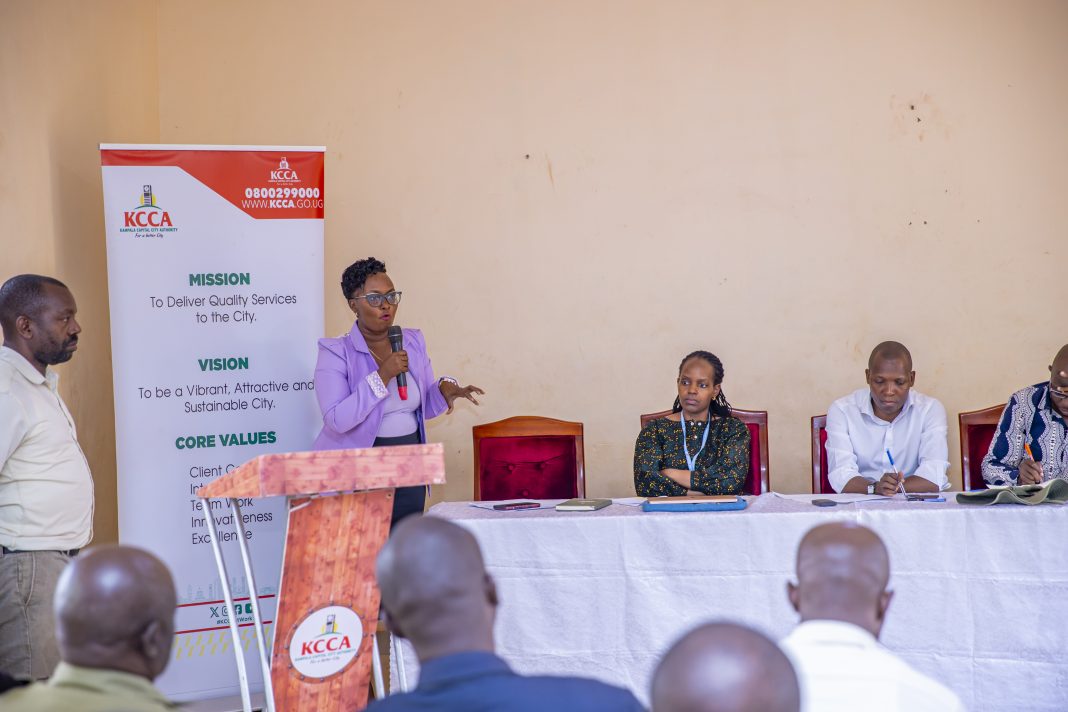The Kampala Capital City Authority (KCCA), in collaboration with UN Habitat, has successfully obtained and launched a $1 million grant project from the Government of Japan aimed at stabilizing and mitigating hazards in the high-risk zones of the Kiteezi landfill, as KCCA continues formal processes to identify a suitable contractor for the site’s full decommissioning.
Following the August 2024 garbage landslide at Kiteezi, KCCA partnered with UN Habitat to draft a joint proposal to the Japanese Government, requesting support for the safe closure of the collapsed landfill, which poses serious environmental and public health threats to nearby residents.
The 12-month initiative, titled “Emergency Technical Assistance to KCCA, Rehabilitating the Kiteezi Landfill”, targets the decommissioning of approximately 7 acres—out of the landfill’s total 39 acres—equating to around 250,000 cubic meters of waste. The intervention will employ the Fukuoka Method, a modern waste management technique.
Key components of the project include: reshaping steep slopes, relocating and stabilizing garbage heaps, installing ventilation systems to disperse hazardous methane gas, setting up leachate collection systems, and building treatment ponds. The initiative also incorporates capacity building for local personnel to improve landfill disaster preparedness and response.
Kyadondo East MP, Hon. Muwada Nkunyingi, applauded the project and expressed gratitude to the Japanese Government and UN Habitat.
“This initiative is timely. Our community has been anxious and waiting patiently for action to minimize further danger,” Muwada said.
“Although the project covers only part of the landfill, it brings relief. We commit to supporting it and appreciate KCCA for engaging stakeholders and updating us on progress,” he added.
He also called on the government to accelerate compensation for affected individuals and hasten the decommissioning process.
Phiona Nshemereirwe, speaking on behalf of UN Habitat, praised KCCA for swiftly mobilizing international support after the incident.
“After the garbage slide last year, we partnered with KCCA to write a proposal to the Japanese Government. By November 2024, an environmental assessment was conducted, and by February, we had secured the $1 million grant,” she explained.
She noted that although the grant is highly competitive, only Uganda and Ethiopia in Africa succeeded in securing it for landfill emergency responses.
“The team leading this effort will include Prof. Mastfujji, a top Japanese expert in the field, so we’re confident in the quality of the work,” Phiona added.
Dr. Sarah Zalwango, Acting Director of Public Health and Environment at KCCA, represented the Executive Director at the launch and thanked the Kiteezi community for their patience.
“We recognize the delays in the compensation process, but we are committed to resolving all pending matters. Your support for this project is commendable, and we’ll continue seeking additional funding to decommission the entire site,” she said.
Kasangati Town Council Mayor, Muwonge Tom, offered condolences to the families affected by the 2024 disaster and cautioned against politicizing the intervention.
“Preserving lives should be our top priority,” he stressed.
Daniel Muhumuza Nuweabine, KCCA spokesperson, also shared updates on the upcoming upgrade of the 9-kilometer Mpelerwe–Kiteezi–Kiti Road, the landfill’s main access route. He said the African Development Bank is close to approving the road works under the Kampala City Roads Rehabilitation Project (KCRRP).
“This project involves no compensation component, so we urge local leaders to sensitize residents to cooperate on matters of right of way,” he urged.
A UN Habitat representative confirmed that manpower and equipment are already being mobilized, with project implementation expected to begin in February 2025 and be completed by March 2026.























